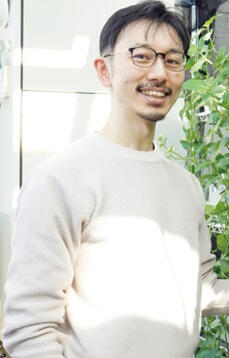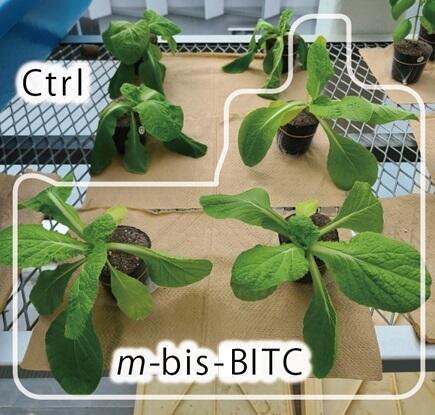
Designated Lecturer, Institute for Transformative Bio-Molecules, Nagoya University
Q1. Why did you choose a career in research?
A1. I wanted to know how living organisms move. The enthusiasm of my former teachers encouraged me to pursue a career in research.
I have been interested in the "movement" of living things since I was a small child. Plants in particular do not seem to move from the ground or their planters, but if you observe them over a long period of time or from microscopic perspectives such as at the cell level, you can see various movements required for survival and growth. I became interested in clarifying why these movements occur and the mechanisms behind them.
I began to think about my career path after I received lectures at Kyoto University from Professor Ikuko Nishimura (currently Professor Emeritus of Kyoto University) and Professor Akira Hase (currently Professor Emeritus of Kyoto University). I strongly admired their deep insights and enthusiasm as botanists, and I jumped into the world of research. Currently, I am studying "stomatal pores" in the plant epidermis at the Institute for Transformative Bio-Molecules (ITbM), Nagoya University.

The time spent to get my body motions adjusted is perfect for clearing the cobwebs in my head from research.
Q2. Please tell us about your research.
A2. Modification of compounds that inhibit stomatal opening and suppression of wilting of cut flowers and Napa cabbage
ITbM is a research center that was established in April 2013 with the aim of advancing fusion research at the boundaries of biology and chemistry. Researchers in various fields are working on clarification and development of "biofunctional molecules" that are the source of movements in living organisms. The research project I am currently working on at ITbM is exploration of the stomatal opening and closing mechanisms and how to control them. A stomatal pore consists of a pair of guard cells and opens in response to blue light in sunlight, allowing for the exchange of gas in the plant. The engine to open this pore is the "proton pump" in the cell membrane. Although the role of stomatal pores and their reactions are taught in middle and high school science courses, the mechanism of their activation has not been fully elucidated.
In my PRESTO project, benzyl isothiocyanate (BITC), which is found in Brassicales plants, was successfully identified as a compound that affects stomatal opening. BITC is a natural compound produced when plants are injured and is also familiar as a pungent ingredient in mustard and other spicy foods. Analysis revealed that BITC inhibit the proton pump in the stomatal pores, preventing their opening.
Based on these results, the molecular structure of BITC was modified in collaboration with a synthetic organic chemistry group at ITbM, and super ITC (m-bis-BITC) was developed. This can be sprayed on cut flowers and Napa cabbage to suppress wilting due to drying and can also be used as a freshness enhancer and drought tolerance-conferring agent that are friendly to both humans and the environment. Publishing this achievement, which was made possible by the unique environment of ITbM staffed by experts in organic synthesis and catalytic chemistry, was a great encouragement for my own research.

Q3. What would you like to say to students aspiring to become a researcher?
A3. Enjoy your endless worries. Make your way toward your aspirations and goals.
My current research goal is to identify the plant cell targets on which BITC acts to suppress proton pump function. I am looking forward to working with members of the research team to explore the potential of plants that has yet to be discovered.
Research often does not go smoothly, and there are always problems both large and small. However, the fun of research is in dealing with these problems before reaching your goals, and the joy of discovery is irreplaceable. It may be also a good idea to find someone in real life or in a book who serves as a role model for you.
The yearning to become such a person is a great driving force to move forward in your research and life. I hope that all of you who are going to pursue a career in research will enjoy the time you spend worrying and struggling at times, as you work toward your own unique aspirations and goals.
(Article: Manami Yokoi)

Profile
Yusuke Aihara
Designated Lecturer, Institute for Transformative Bio-Molecules, Nagoya University.
Born in Saitama Prefecture. Completed the Doctoral Program in Biological Science at the Graduate School of Science at Kyoto University in 2012. Ph.D. (Science). Has been in his current position since 2022. Previous positions include NIBB research fellow, Division of Environmental Photobiology, National Institute for Basic Biology, and researcher, Department of Biological Science, Graduate School of Science, Nagoya University. Was an ACT-X researcher from 2019 to 2023 and has been a PRESTO researcher since 2022.




